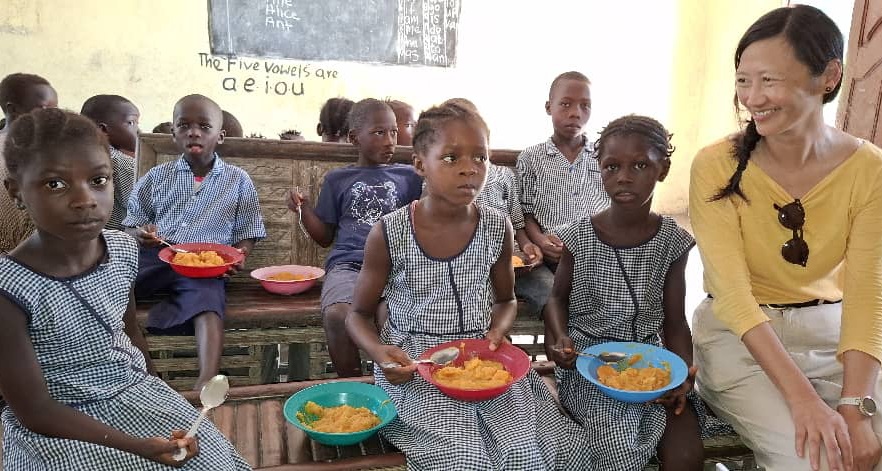To bolster food security and education in Sierra Leone, the Head of Mission for Iceland, Ásdís Bjarnadóttir joined WFP Country Director, Yvonne Forsen on a two-day visit to Bonthe Island (18-20 November 2024), in Sierra Leone to monitor the implementation of WFP’s Home-Grown School Feeding (HGSF) initiative.
The visit came on the heels of a recent contribution of USD 2.4 million by the Government of Iceland, to provide nutritious home-grown meals to over 40,000 school children across 184 public schools in Bonthe district.
During the visit, the Head of Mission visited FAWE Primary School, a World Vision-assisted WASH school in Imperri chiefdom. She also travelled by boat to coastal communities such as Delken, Mbokie, Jamaica, and Choekolo to observe school feeding and see cultivated, orange-fleshed sweet potato (OFSP) gardens and established wood lots. The Head of Mission also interacted with headteachers, farmers, and School Management Committee representatives, gaining valuable insights into the impact of the HGSF programme on the local communities.
The HGSF initiative in Bonthe is not only supporting local Farmer Based Organizations (FBOs) but also providing training, agricultural inputs, and market opportunities to empower 1,740 women and youth farmers on the cultivation of OFSP.
Summing up her impressions about the visit, Head of Mission, Ásdís, said that it had been an insightful visit to Bonthe district with WFP. She mentioned meeting with school children, farmers’ groups, and communities, and observed how home-grown school feeding supported by Iceland plays a pivotal role in promoting education and supporting local food production.
This visit underscores the commitment of Iceland and WFP to changing lives through sustainable and innovative approaches to school feeding in Bonthe District.
Overall, WFP provides school meals to 255,167 pupils in Sierra Leone across five districts, with 55,313 children covered under the home-grown school feeding program. This initiative aligns with the Government of Sierra Leone’s National School Feeding Policy and Feed Salone, underscoring its commitment to leveraging school feeding activities for local food production and procurement, thereby fostering social and economic development within communities.











